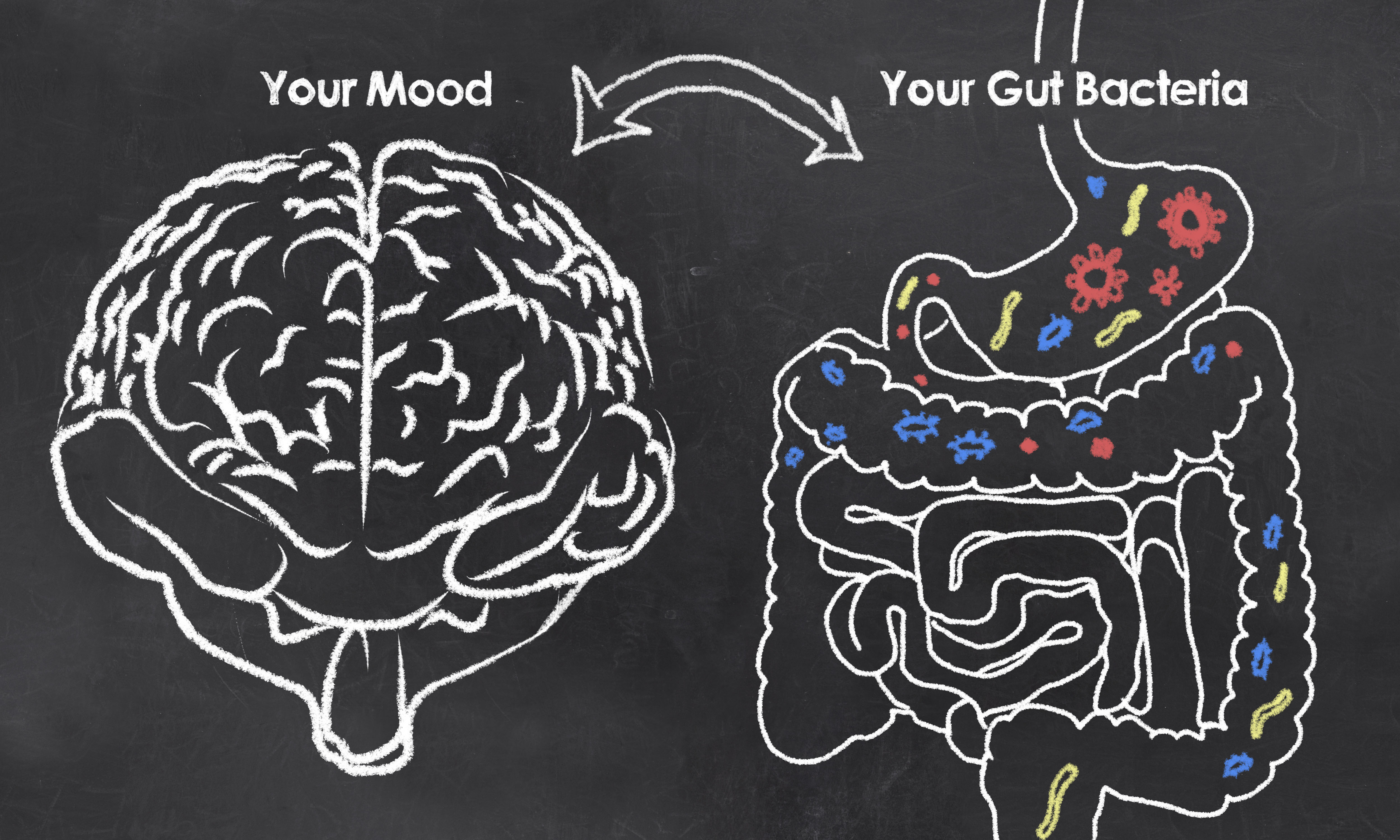
We have known for years that our diet plays a direct role in diseases such as diabetes, heart disease, and many cancers. However, our diet’s influence extends further and impacts how we feel, think, and even believe. Recent neurobiological discoveries confirm the intimate relationship between what we eat and the seat of morality. Science and the Bible both align on the truth that what we do with our body affects the brain and our spirituality. “So whether you eat or drink, or whatever you do, do it all for the glory of God,” 1 Corinthians 10:31.
Depression, anxiety, and panic disorders are on the rise at a strikingly similar rate to intestinal disorders, autoimmune diseases, and metabolic imbalances. Could there be a connection between the brain and the gut?
Our gut is intertwined with thousands of nerves and has been nicknamed the “second brain.” It is intimately connected to the central brain via the vagus nerve, which is the longest nerve in the body. Messages from our brain travel down the vagus nerve to the gut either signaling a sense of calm to digest and absorb or a sense of distress in order to prepare for “fight-or-flight” in times of stress.
Likewise, our gut sends messages up the vagus nerve to the brain signaling its well-being or state of distress. Constant communication requires molecular messengers known as neurotransmitters. Neurotransmitters are produced either inside a nerve cell or between nerve junctions called synapses. Our memory, feelings, and most functions depend on neurotransmitters signaling properly. The most prevalent neurotransmitter is glutamate, which causes stimulating and excitatory signals and GABA which causes inhibitory signals. Serotonin is a powerful transmitter that is most prevalent in the intestines. Other examples of neurotransmitters are dopamine, norepinephrine, and acetylcholine.
Our diet, environment, and moods impact the type of neurotransmitters we produce. Emerging data support the role of intestinal bacteria as a powerful influence on anxiety and depression. Intestinal bacteria are little organisms that reside in our gut and outnumber human cells 10 to 1. They have an expansive physiologic repertoire influencing brain development, cognitive formation, immunity, and many organic pathways.
When balanced, our intestinal flora can lead to balanced emotions and thoughts. Dysbiosis, or imbalance, can lead to emotional imbalance and mood disorders. Various factors, such as genetics, lifestyle, birth, and medications affect the quality of our gut-ecosystem.
Some dietary factors are directly linked to a healthy gut-ecosystem. Plant based fiber derived from fresh fruits, vegetables, legumes, and whole grains produce short-chain fatty acids (SCFA), which fuel bacteria. SCFA then activate the production of serotonin in the gut, which travels up the vagus nerve and stimulates a sense of peace and contentment. Studies show that those with high SCFA have less circulating cortisol (a stress hormone) and are less prone to anxious and depressive thoughts and actions.
Interestingly, pathologic stress and anxious thoughts shunt blood supply away from the gut. This weakens the intestinal wall causing a phenomenon called leaky gut syndrome. In young children, this can affect brain development, motor and language functions, as well as emotional stability.
Some popular foods that detrimentally lead to imbalanced mood and poor memory are sugar, caffeine, and trans fats. Studies show that those who consume high amounts of sugar have high rates of aging brain cells, leading to impaired memory and diminished cognitive processing. Sugar is also highly addicting due to its effects on dopamine, the pleasure-inducing neurotransmitter.
Caffeine is a drug that crosses into the brain and stimulates a stress response. It does so by artificially blocking receptors in our brain, which results in hyper-surges of energy. This liquid stress also diminishes blood flow to the brain by causing constriction of blood vessels.
Trans-fats are found in processed pastries, fried and junk foods. Studies show that trans-fats result in chronic inflammation which leads to oxidative stress in the brain. This, in turn, affects the memory-network of our brain: the hippocampus, hypothalamus, and cerebral cortex.
“The brain nerves which communicate with the entire system are the only medium through which Heaven can communicate with man and affect his inmost life. Whatever disturbs the circulation of the electric currents in the nervous system lessens the strength of the vital powers, and the result is a deadening of the sensibilities of the mind, (My Life Today, p. 153).
Remember to detoxify your brain of negative thoughts and critical attitudes while cleaning the intestinal tract of toxic influences. The balance between our brain and gut are equally important and dependent on our diet, lifestyle, and intestinal microflora.
REFERENCES:
1. Carabotti M, Scirocco A, Maselli MA, Severi C. The gut-brain axis: interactions between enteric microbiota, central and enteric nervous systems. Ann. Gastroenterol. 2015;28:203–209. 2.Javier A. Bravo, et al. Ingestion of Lactobacillus strain regulates emotional behavior and central GABA receptor expression in a mouse via the vagus nerve. PNAS 2011 : 1102999108v1-201102999.
2. Lyte, M. Probiotics function mechanistically as delivery vehicles for neuroactive compounds: Microbial endocrinology in the design and use of probiotics. Bioessays. doi: 10.1002/bies.201100024.
4. Hurley, Dan. Your Backup Brain. Psychology Today. Dec 2011. 80 - 86
5. Am J Physiol Gastrointest Liver Physiol. 2013 Jan 15;304(2): G211-20. doi: 10.1152/ajpgi.00128.2012. Epub 2012 Nov 8.
6. Lakhan, Shaheen, Kirchgessner A. Gut inflammation in chronic fatigue syndrome Nutrition & Metabolism, Oct 12, 2010. DOI: 10.1186/1743-7075-7-79
7. Diaz Heijtz R, Wang S, Anuar F, Qian Y, Björkholm B, Samuelsson A, Hibberd ML, Forssberg H, Pettersson S. Normal gut microbiota modulates brain development and behavior. Proc Natl Acad Sci U S A. 2011 Feb 15;108(7):3047-52. Epub 2011 Jan 31.
8. Clarke G, Grenham S, Scully P, Fitzgerald P, Moloney RD, Shanahan F, Dinan TG, Cryan JF. The microbiome-gut-brain axis during early life regulates the hippocampal serotonergic system in a sex-dependent manner. Mol Psychiatry. 2012 Jun 12. doi: 10.1038/mp.2012.77. [Epub ahead of print]
9. Longhi R, Almeida RF, Machado L, Duarte MM, Souza DG, Machado P, de Assis AM, Quincozes-Santos A, Souza DO. Eur J Nutr. 2017 Apr; 56(3):1003-1016. Epub 2016 Jan 11